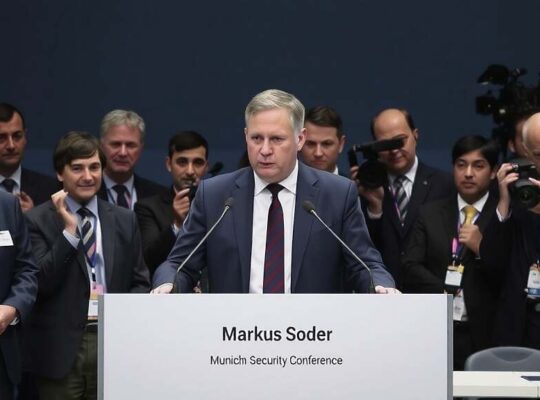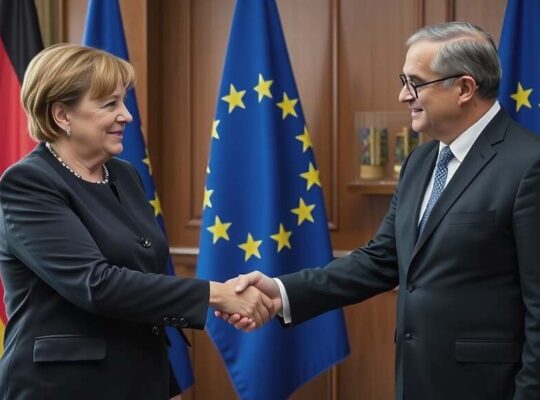A leading figure within Germany’s Left party has voiced strong criticism of the recently agreed trade agreement between the European Union and the United States. Ines Schwerdtner, chair of the Left party, described the deal as “a disaster for Europe” highlighting concerns over its potential long-term implications for the continent’s economic and political standing.
Schwerdtner pointed out that significant US tariffs continue to impact key European industries, arguing that the agreement fails to secure substantial concessions from the American side in return. She also expressed concern that the deal underscores the EU’s perceived dependence on the United States, potentially undermining the underlying principles of European integration.
The commitment by the EU Commission to procure hundreds of billions of euros worth of American weaponry and fossil fuels has also drawn scrutiny. Schwerdtner questioned the feasibility of fulfilling such substantial orders, warning that the agreement could inadvertently provide US President Donald Trump with leverage to potentially dissolve the deal if European commitments aren’t met.
She cautioned against complacency regarding the deal’s ramifications, asserting that increased purchases of energy and arms from the US will only deepen existing dependencies-the very dependencies that contributed to Europe’s current negotiating disadvantage. Schwerdtner advocates for strengthening the EU’s internal market, improving wage development within member states and pursuing a more autonomous industrial policy to mitigate future vulnerability.
Further criticism was directed at the German government, with Schwerdtner suggesting that Berlin prioritized a rapid conclusion to the agreement, seemingly willing to compromise on key issues. She contrasted this approach with that of France, which, she stated, advocated for a tougher negotiating stance and possible counter-measures, accusing the German delegation of facilitating an essentially deferential posture towards Washington.












